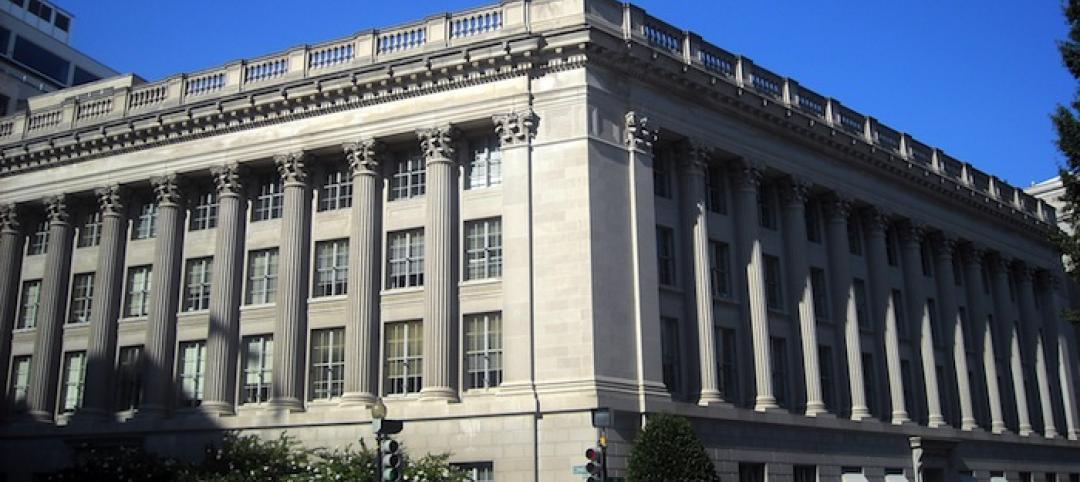Washington recently became the first state to require all electric heat for new buildings.
Under the state’s new energy code, most new commercial and large multifamily buildings will have to install heat pumps. The State Building Code Council, which voted to adopt a revised energy code that includes the all-electric provision, will consider a similar proposal for smaller residential buildings later this year. The revised code also requires the use of heat-pump hot water heaters.
The new Washington code includes exemptions for hospitals, research facilities, and other buildings where fossil fuels are required for “specific needs that cannot practicably be served by heat pumps.” Washington’s action is the latest in a widespread effort to transition buildings to appliances and HVAC equipment that can be powered by clean electricity. Advocates in many areas are backing legislation and code updates that restrict the expansion of natural gas use in new buildings.
There has been significant pushback on these efforts, though. In early April, a proposed gas ban for new buildings in New York State was dropped during contentious budget negotiations. (New York City, however, did impose a gas ban on new buildings in December.) California adopted a building code change last August that strongly discourages gas hookups in new buildings but does not mandate it.
Related Stories
| Aug 19, 2013
Baltimore City Council committee OKs taxpayer assistance for $1.8 billion Harbor Point mixed-use project
A Baltimore City Council committee approved a plan to give millions in taxpayer assistance to the $1.8 billion Harbor Point development.
| Aug 8, 2013
Bipartisan bill would strengthen model building codes to boost energy efficiency
The Energy Savings and Industrial Competitiveness Act, a bipartisan U.S. Senate bill, would strengthen model building codes to make new homes and commercial buildings more energy efficient.
| Aug 2, 2013
Texas law expected to help reduce construction payroll fraud
Texas lawmakers want to get tough on construction companies that commit a certain form of payroll fraud, passing a new law recently signed by Gov. Rick Perry.
| Jul 26, 2013
AGC launches new coalition to help bring tax relief to construction sector
Associated General Contractor of America (AGC) has launched the Coalition for Fair Effective Tax Rates to bring tax relief to the construction sector.
| Jul 26, 2013
Legislation would revamp federal contracting policy impacting small design and construction firms
Legislation was introduced in the U.S. House of Representative this month to ban reverse auctions when an agency determines small businesses are qualified to bid on the solicitation.
| Jul 17, 2013
U.S. House continues to block enforcement of light bulb standards
The House of Representatives last week voted to block the enforcement of light bulb standards that many say would effectively force people to buy more expensive compact fluorescent bulbs.
| Jul 11, 2013
Bill to borrow more for college spending in Michigan criticized due to ‘higher-ed bubble’
An amendment to a Michigan appropriations budget authorizes an increase in state debt to pay for state university construction projects. But some experts see a “higher education bubble” on the horizon, and said more taxpayer debt for more buildings is a bad idea.
| Jul 11, 2013
Skanska exits U.S. Chamber of Commerce over LEED controversy
Skanska USA resigned from the U.S. Chamber of Commerce over the Chamber’s decision to support the American High-Performance Buildings Coalition.
| Jun 27, 2013
AGC urges Congress, Obama to reject caps on construction workers in immigration legislation
The unemployment rate in the construction sector in May was the lowest it has been in five years, which could signal a coming worker shortage, according to the Associated General Contractors of America.
| Jun 27, 2013
California legislators make push for prevailing wage law
California lawmakers introduced new legislation that would cut off state construction funds from charter cities that don’t mandate the equivalent of union-scale wages on public-works projects. Of the 482 cities in California, 121 are charter cities.
















